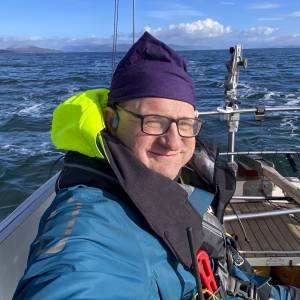
UK Government announces significant measures to protect our seas
The Marine Conservation Society welcomes the UK Government’s latest announcement of new byelaws for 13 English Marine Protected Areas to safeguard over 4,000km2 of seabed from bottom trawl fishing – in total, an area equivalent to the size of Essex.
The announcement increases the total area of English seabed protected from bottom trawling to 12%, as well as halting sandeel fishing in the English areas of the North Sea. This closure builds on the success of the Dogger Bank sandeel restrictions, protecting a vital part of the marine food chain and significantly reducing damage to the seabed.
The 13 new byelaws for offshore Marine Protected Areas (MPAs) in England include areas off the south coast of the Isle of Wight, west of Land’s End and east of Lowestoft, protecting important sea life such as pink sea fans, fragile sponges and anemones.
Gareth Cunningham, Director of Conservation and Policy at the Marine Conservation Society: “You would assume that designating an area as a ‘Marine Protected Area’ would protect the site from damaging activities. Regrettably, this has not been the reality for many sites, with effective management measures often slowly implemented. Today’s announcements are crucial in properly protecting our seas.
“The closure of English waters to sandeel fishing allows vast areas outside our network of protected areas much-needed breathing room, benefiting a host of marine species, from fragile sea sponges to the fish, cetaceans and seabirds that rely on sandeels for food”
Much of the carbon stored in the UK’s seafloor (93%) is found in the muddy and sandy sediments in offshore waters. When the seabed is trawled, stored carbon is released into the water column, negatively impacting water chemistry and ocean productivity. When left undisturbed, these habitats store carbon, and recover to provide vital habitats for young fish and many other sea creatures
Peter Richardson, Head of Ocean Recovery at the Marine Conservation Society: “When damaging fishing methods continue to be permitted in areas designated to protect the seabed, the health of the planet is compromised. It prevents the recovery of ecosystems already degraded by decades of exploitation, limiting the seabed’s ability to store carbon to combat the effects of the climate crisis.”
In June 2022, the UK Government closed 4 large offshore sites to bottom trawls, including over 12,300km squared of seabed at Dogger Bank MPA. Since the byelaw came into place, the Marine Conservation Society identified a 98% drop in fishing activity, showing how impactful these byelaws are. The UK Government has set a target to fully protect all English offshore MPAs designated for their seabed features – a further 28 offshore sites – by the end of 2024.
The closure of the North Sea’s English waters to sandeel fishing removes another threat to the health of our seas, ensuring that the UK’s declining seabird population, and many more marine species, can rely on this vital food source – a cornerstone of the marine ecosystem.
Visit the Marine Conservation Society’s Marine Protected Area Reality Checker to investigate the extent of protections in place.
The post UK Government announces significant measures to protect our seas appeared first on All At Sea.
